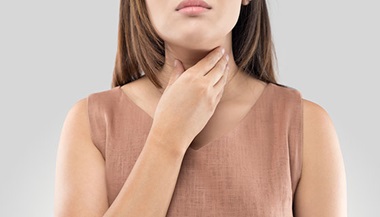Seasonal Allergies—Answers from an Otolaryngologist–Head and Neck Surgeon
Featured Expert
At any geographic location or time of year, allergies can affect health. Allergens such as pollen, air pollution, dust and mold can cause seasonal allergy symptoms including sniffling and sneezing. Murray Ramanathan Jr., professor of otolaryngology–head and neck surgery at Johns Hopkins Medicine, answers some of the most commonly asked questions about environmental allergies.
When is allergy season?
This depends on where you live. Different climates determine what is growing or blooming at a particular time, how dry the air is and other factors. For instance, in the mid-Atlantic, spring is when pollen becomes a factor. The levels of pollen in the air vary from day to day, and weather apps can often tell you how high the pollen level is and what the predominant sources are.
But in addition to pollen, air quality levels are important to consider. Air pollution, smoke and other particle levels in the air can cause allergy symptoms such as burning, watery eyes and sneezing. If you suffer with allergies, it’s important to keep track of air quality forecasts for your area, especially if you plan on being outside.
Can I get seasonal allergy symptoms if I’ve never had them before?
Yes. Just because you’ve never experienced allergies before does not mean you never will. Unfortunately, an allergy can emerge at any time in your life.
What are the most effective ways to treat seasonal allergies?
Allergies are treated with avoidance of the allergen and with medications, including corticosteroids and intranasal or oral antihistamines. People who have severe symptoms despite these treatments may be able to benefit from sublingual immunotherapy.
What is sublingual immunotherapy?
Immunotherapy treats the cause of allergies by giving small doses of what a person is allergic to, which increases “immunity” or tolerance to the allergen and reduces the allergic symptoms. Unlike injection immunotherapy, which has to be given as shots in a doctor’s office, sublingual immunotherapy can be taken at home as drops or tablets under the tongue, so it’s convenient for busy kids, students and working adults.
Do you suggest any natural remedies?
Saline washes of the nose are helpful in washing out allergens, and many of my patients find them to be helpful.
Can you allergy-proof your home?
Allergy-proofing should be directed toward the allergens that give you problems. Allergy testing can be helpful in this regard.
- If you are allergic to outdoor allergens such as pollen, keeping the windows closed and running the air conditioning can be helpful.
- For pet allergies, keeping the pet out of the bedroom and washing the pet frequently can help.
- Those with dust mite allergies may benefit from HEPA [high efficiency particulate air] filters, mattress covers and washing bedding regularly.
Rugs and carpeting can trap allergens, so frequent vacuuming or even replacing carpeting with flooring may relieve symptoms. Air filters with HEPA filters have become popular during COVID and they can filter out particulates as well as allergens.
Allergies or COVID?
Although most people who have allergies are aware of the fact, some of the upper respiratory symptoms of allergies can overlap with those of COVID-19, especially the omicron variant, which can cause runny nose and congestion.
Allergy symptoms tend to vary in intensity throughout the day. For instance, if you’re allergic to pollen or air pollution, your symptoms are likely to improve when you come inside or take a shower. Also, if taking an allergy medication helps relieve your sniffles and sneezing, allergy is probably the cause.
For nasal and sinus miseries that stay the same or get worse as the day progresses, especially if fever is part of the picture, it makes sense to get tested for COVID-19. You also might be dealing with a respiratory infection other than coronavirus.
Can allergies cause a fever?
No, allergies do not cause fever. A fever is usually a sign that you have an infection such as a cold, influenza, sinus infection or COVID-19.
What do you think the next important research regarding allergies will be?
Current research is focused on understanding how we can modulate allergies at the molecular level ― including those caused by environmental pollution. My lab studies how particulate [consisting of particles] air pollutants and allergens cause inflammation in the nose and sinuses, and information we gather from these studies may point us in the direction of new and effective therapies.







